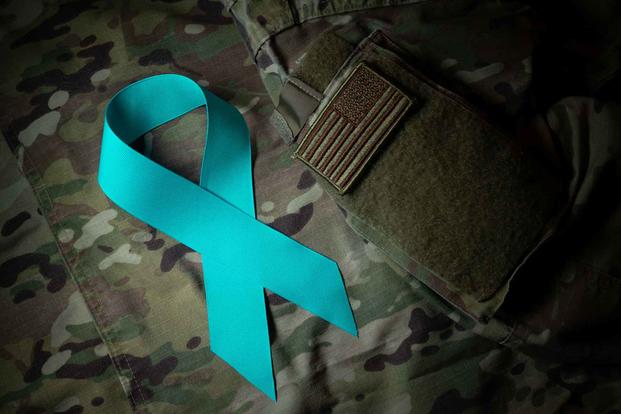U.S. military personnel who have experienced sexual assault are twice as likely to leave the military within 28 months of an attack, according to a new Rand Corp. report.
"Sexual assault and sexual harassment are associated with a wide range of harms to individual service members, but this study highlights another negative impact of these crimes -- higher rates of attrition and associated harms to force readiness," Andrew Morral, senior behavioral scientist at the nonprofit think tank and lead author of the report, said in a Rand news release on Tuesday.
"We estimate that sexual assaults and harassment of service members that occurred in a single year were associated with the premature loss of at least 16,000 person-years of service over the following 28 months."
Read Next: A 'Disturbing Pattern' of Deadly Army Black Hawk Crashes Has Lawmakers Asking Questions
The report, "Effects of Sexual Assault and Sexual Harassment on Separation from the U.S. Military," showcases the findings of the 2014 Rand Military Workplace Study, which the organization conducted for the Pentagon. Completed in 2019, the Rand document was "recently cleared for publication by DoD's Sexual Assault Prevention and Response Office," according to the news release.
The report estimates that 5,600 of the 21,000 service members estimated to have been sexually assaulted in fiscal 2014 left the military within a 28-month period.
"Although some of these service members would have left the military even if they had not been sexually assaulted, our analyses suggest that there were 2,000 ... more separations than would be predicted had these individuals not been assaulted," the report states.
Researchers at Rand estimate that 28,200 of 117,000 service members estimated to have been sexually harassed in fiscal 2014 also separated from the service over the next 28 months, according to the report.
The report comes just after two months after the release of an explosive report from an independent panel that reviewed the command climate at Fort Hood, Texas, in the wake of the disappearance and murder of Spc. Vanessa Guillen.
The Fort Hood review found that the leadership was permissive of an environment that allowed sexual assault and sexual harassment to persist at the base. Then-Army Secretary Ryan McCarthy relieved or suspended 14 senior leaders as a result of the report, which included nine findings and 70 recommendations.
Former Under Secretary of the Army James McPherson said that the service would take a hard look at its flawed Sexual Harassment and Assault Response Prevention, or SHARP, program as a result of the independent review.
Rand researchers found that separations from the military following sexual assault or sexual harassment are "disproportionately voluntary" and that "men are especially likely to seek voluntary separations following a sexual assault or sexual harassment," according to the news release.
"This trend harms military readiness as well as the wallets of affected service members. … Because military compensation is weighted toward retirement and deferred benefits, those who leave the service early may forgo considerable compensation," according to the Rand release.
Researchers also stressed that the report likely offers a narrow view of the problem of service members leaving the military after sexual assault and harassment.
"It is likely that the actual numbers of military separations caused by sexual assault and sexual harassment are underestimated because this study only reflects a 28-month window of time and thus only a fraction of all the sexual assault and sexual harassment experiences during the careers of the service members included in the 2014 study," according to the report.
The authors of the report recommend that the Pentagon prioritize sexual harassment training, prevention and response and continue to study how reporting a sexual assault affects separation.
-- Matthew Cox can be reached at matthew.cox@military.com.
Related: Army Must Take 'Hard Look' at Sexual Assault Prevention Program, Fort Hood Review Finds











